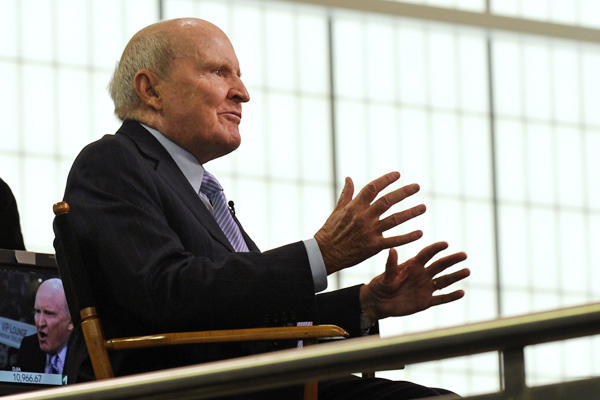
Jack Welch: the influential former GE chief has said that shareholder value is a result, not a strategy
Shareholder value
Of all the 50 ideas profiled in this publication, shareholder value enjoys a particular distinction. Jack Welch, former chief executive of General Electric and one-time champion of shareholder value, called it “the dumbest idea in the world”.
Yet it has been one of the most influential – and looks likely to remain so. Shareholder value originally rose to prominence to solve what Adam Smith, the Scottish economist, called the “agency problem” – that managers of a company might follow a course which was detrimental to the company’s owners. Shareholder value was a way of ensuring that managers served the interest of those who employed them rather than their own.
Shareholder value faced two principal objections. The first was that the methods used to enforce it did not seem to work very well. Share options, for example, were meant to ensure that chief executives only did well when the shareholders did. Instead, many critics blamed share options and other incentives for managers manipulating company performance to ensure they did best for themselves. That was what led to Welch’s “dumbest idea” comment in the wake of the financial and banking collapse. “Shareholder value is a result, not a strategy,” he said. “Your main constituencies are your employees, your customers and your products.”
This led directly to the second objection to shareholder value: that it gives too much primacy to just one group with an interest in the company. What of all the others? The late Sumantra Ghoshal of London Business School argued that employees were far more important to a company’s success than shareholders. Critics of the shareholder value idea argue that many shareholders have little commitment to a company, particularly in an era of high-frequency trading.
However, shareholder value is likely to endure as a powerful idea. First, it gives managers something against which they can be measured. Other managerial responsibilities – to employees, customers or the community – are numerically less precise. Second, many ordinary people rely on companies doing well for their shareholders because their own pensions and investments depend on it.
Michael Skapinker
